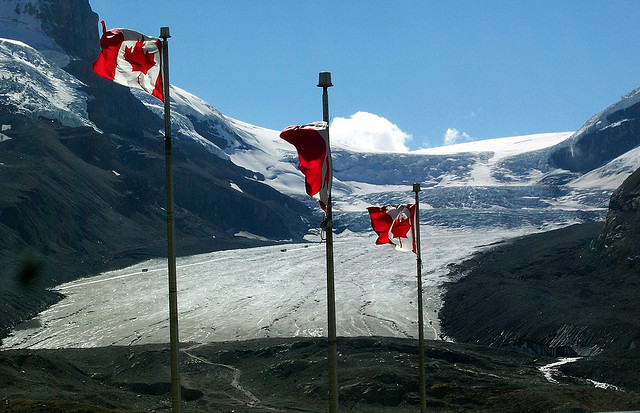Like this article? Chip in to keep stories like these coming.
![]()
The need to balance the needs of the economy with those of the environment, first raised by Liberal leader Justin Trudeau and NDP leader Thomas Mulcair during last week’s Maclean’s leaders’ debate has become an election issue. This means that culture has become an election issue too.
To understand this, you need to know that culture is not reducible to the industries that produce and distribute it, nor is it interchangeable with for-profit entertainment. It’s akin to the culture in a petri dish. It’s a medium for the growth of identity, collective memory and a shared sense of what matters. It’s in the particulars of the public-interest information, in the stories of conflict and their resolution within our society that we learn how short-term self-interest must be balanced with empathy and the longer term common good.
It’s culture, therefore, that helps Canadians and their leaders discern how to strike the balance between the economy and the environment.
That’s why threats to a healthy culture in this country are an election issue.
One threat is the shutting down of public-interest information, through the gagging of government scientists, including the one who discovered perhaps the largest ever documented hole in the ozone layer above the Arctic; through new controls over Access to Information now that the Privy Council Office has taken over vetting information requests, and through such drastic cuts to our National Library and Archives that half the staff that help the public gain access to archived print and other ‘analog’ material lost their jobs.
These are the people who held the keys to trunks in our collective attic, helping writers like me to research our books or the scripts for our films, and bringing relevant historical Canadian content to the classrooms of our country.
Second, there’s the underfunding of culture. Canada Council funding has not kept pace with trends toward both an intensely local culture — through festivals of every kind from film and dance to performance poetry, books and ideas — and simultaneously an intensely global one featuring multiple digital platforms for reaching diverse audiences and cultivating dialogue between them.
Print media is shrinking, and the most hopeful start-ups in digital journalism, including Huffington Post, have largely stopped funding long, investigative pieces in favour of repackaging and consumer trivia. This leaves Canadians less and less able to know what’s happening, and through a range of interpretative lenses.
Then there’s the steady cutbacks to the CBC, such that per-capita funding has dropped from $39.73 in 2006 to $29.04 in 2015.
And now there is a new threat: the state-owned enterprises (SOE) clause of the biggest ever free-trade and investment treaty, the Trans Pacific Partnership deal currently under negotiation.
According to analysis by New Zealand academic Jane Kelsey, public broadcasters like the CBC might end up being forced to operate entirely on a for-profit basis. Apparently Canada had asked for a culture exemption, and apparently there are lists of possible reservations for SOEs in the Competition Chapter. But we don’t know because the text has not been made public, and negotiations are secret.
The worry of legitimizing culture only as a profit-making business is it would de-legitimize one of the most important parts of culture: the public-interest infrastructure (radio, television and digital) that allows Canadians to know each other’s stories and hear each other think about what matters.
It would also effectively de-legitimize people like me, because culture as a public good has informed everything I’ve done, from the 10 books I’ve written (starting with my first, an oral history of this country during the 1970s National Unity crisis), to a video series called Canada in the Global Village to a couple of Ideas pieces on CBC radio. That’s not to deny the pleasure of making money plus garnering prestige and a couple of awards; just to say that there’s much more to the story than this.
It’s this larger story that deserves attention, and why culture should be an election issue.
I want to know which party will take a stand for culture as a public good, and will commit to the policies and the necessary funding to support this. A healthy democratic discourse helping us to get the balance right on what matters depends on it.
Heather Menzies is the chair of The Writers Union of Canada. Her most recent book is Reclaiming the Commons for the Common Good.
Photo: flickr/ futureatlas.com



